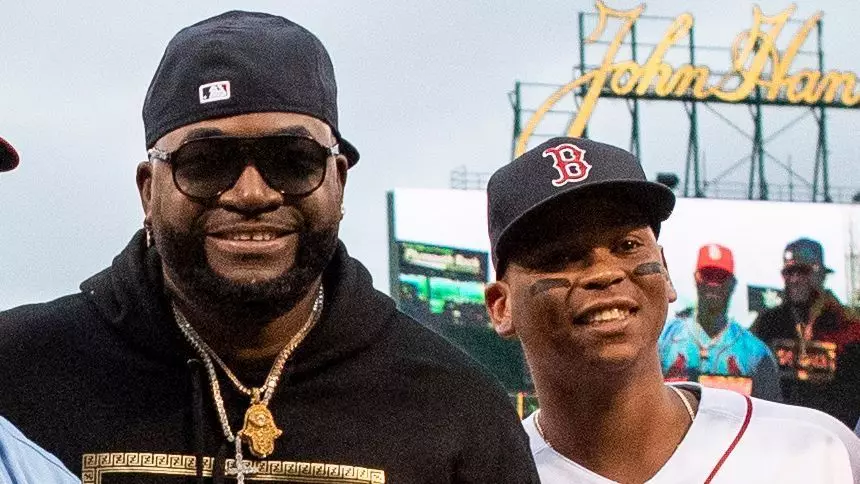In today’s fast-paced and high-stakes world of Major League Baseball, the role of the designated hitter (DH) is often underestimated. Once primarily seen as a temporary solution for aging or injured players, the DH position has evolved into a vital element of team strategy. When David Ortiz—an icon of the position—speaks on the subject, it’s worth listening. Recently, Ortiz shared his thoughts on the Boston Red Sox’s treatment of Rafael Devers, emphasizing that the responsibility for his career trajectory should lie in the hands of the 28-year-old slugger himself. This approach is a refreshing reminder of how important it is to respect a player’s journey and allow them to dictate their own career path.
A Sudden Shift in Team Dynamics
The Red Sox faced a significant change when first baseman Triston Casas was sidelined for the season due to a serious injury. With Casas gone, speculation swirled regarding whether Devers should be shifted into the first-base role. While many fans and analysts quickly suggested this in light of the injury, Ortiz asserted that such a move shouldn’t be made hastily—or at all. He reasoned that Devers was designated purely as a full-time DH for a reason. Under new guidance at the DH position, Devers has demonstrated remarkable performance, boasting a .286 batting average, 12 home runs, and a league-high 52 RBIs as of late May. Ortiz’s perspective underscores how crucial it is to maintain a player’s focus and confidence, especially during tumultuous times.
The Importance of Player Autonomy
Ortiz’s implicit message is clear: let Devers make the decision regarding his own transition to first base, if he chooses to make it at all. Unlike traditional roles in baseball, where players might feel obligated to take on multiple positions for the sake of the team, today’s athletes are increasingly aware of their strengths and weaknesses. Ortiz offers valuable insight into the mental aspect of such transitions, suggesting that players, much like Devers, should have the autonomy to explore new positions when they feel ready, rather than being rushed into them. This philosophical approach can enrich the game and foster a more harmonious environment within the clubhouse.
Rafael’s Journey: From Controversy to Confidence
It’s also crucial to acknowledge the journey Devers has undergone since being appointed the team’s primary DH. Initially, he hesitated at the thought of stepping into this role, preferring the dynamic nature of playing in the field. Ortiz’s reflections reveal that it’s not solely about position; it’s about empowering players to excel without the threat of disruption from sudden changes. Devers’s evolution as a hitter under these circumstances paves the way for a confidence-bolstering narrative, allowing him to showcase his abilities without the added stress of new responsibilities that he hadn’t anticipated.
Lessons from Big Papi: A Legacy of Patience and Growth
As Ortiz continues to champion the idea of allowing players like Devers to flourish within their designated roles, his own experience as a primary DH serves as a valuable lesson on patience in professional sports. Ortiz recounts a time when the role of a DH was less celebrated than today; he highlights the need for today’s players to understand their value rather than fit into a preconceived mold. Perhaps Ortiz is advocating for a cultural shift, urging teams to recognize that allowing players to embrace their roles fully can result in exceptional performances and, by extension, greater success. This sentiment not only applies to Devers but resonates across the league as managers consider the long-term implications of their personnel decisions.
In sum, Ortiz’s insight offers not merely a defense of Devers’s current stance, but an educational moment for baseball in general. Let players thrive in their chosen roles, and the rest will follow. Whether Devers ultimately decides to pivot to playing first base remains to be seen, but one thing’s for certain: honoring the uniqueness of each player’s journey is the key to unlocking their fullest potential.


Leave a Reply